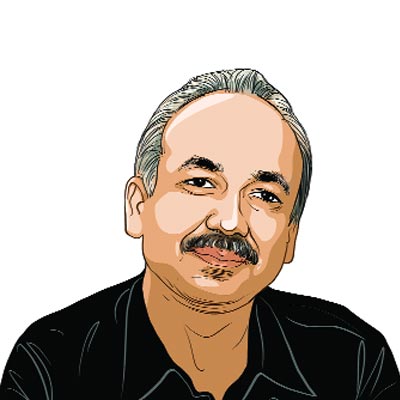Opinion On borrowed time
Can Nepals assembly get the job done by May?
Nepals Constituent Assembly (CA) extended its tenure by six more months,promising yet again that its intentions are sincere and that it will complete the constitution-drafting process and the peace process by May 28,2012. Extending the deadline,the fourth since the CAs original timeframe,was a lot easier this time as the supreme court had given an unsolicited relief,asking political parties to go for the last extension to complete a process in which an enormous amount of time,energy and expectations have been invested.
Delivering its judgment a week ago,a five-member bench headed by Chief Justice Khil Raj Regmi,however,added that another failure to deliver the constitution would result in the dissolution of the assembly. If that comes to pass,political parties will have to either go for a referendum or make other constitutional arrangements.
In fact,a petition before the supreme court had questioned the constitutional validity of the CAs earlier extensions. It pointed to a previous supreme court judgment that said the House could have just one extension of six months,and even for that a state of emergency had to be declared. The court did not go into its past judgment; instead,it simply asked for the the fourth extension to be the last.
The judgment made Nepals Prime Minister Baburam Bhattarais job rather easy. Further,his resolution for an extension was endorsed by four major parties the Unified Communist Party of Nepal-Maoists (UCPN-M),Communist Party of Nepal-Unified Marxist Leninist (CPN-UML),United Democratic Madhesi Front (UDMF) and the Nepali Congress and faced little opposition.
However,the supreme court,perhaps for the first time,has been criticised both inside and outside the House,and by those who oppose the extension as well as those who favour it. They decry the court has transgressed into an arena essentially political.
Indian Finance Minister Pranab Mukherjee,who was in Kathmandu on November 27,encouraged Nepals political parties to conclude the peace and constitution-making processes,saying,India has an abiding interest in it. The UK,Norway,Switzerland and other European countries too welcomed the extension of the Houses tenure as a fresh commitment to take the twin processes to their logical conclusion. But things will not be as easy as they presume.
Despite the accord displayed by the four major parties,something which routinely precedes the passing of a resolution to extend the assemblys tenure,they are a divided lot. The question is: can they come to an agreement on returning the property confiscated by the Maoists,on integrating and rehabilitating former Maoist combatants,and on setting up the truth and reconciliation commission by the new date of December 15?
Even as the four parties promise to give final shape to their deal to have up to 6,500 Maoist combatants integrated into the army,Prachanda,in the presence of Bhattarai,has said,We will try to have up to 9,000 combatants integrated. Prachandas statement is a sign that there are still unresolved issues.
The people are disillusioned not only by the assemblys repeated failures to honour the deadline but also by the growing allegations of corruption against the Maoist party and its government. There have been reports that salaries and allowances meant for about 3,000 Maoist combatants who had gone missing from their designated cantonments were being allegedly withdrawn by the party.
The irrigation minister,Mahendra Yadav,is also under the scanner over 20 officials of the ministry have submitted a petition to the prime minister alleging the minister has been taking bribes for sanctioning projects. Many bureaucrats have come out openly,alleging that ministers demand bribes in return for plum postings.
Add to this the allegations that local development funds have been underutilised. Elections to local bodies have not been conducted in the past decade. Funds are routed to nominated bodies in which four major parties have exclusive representation. Not more than 30 per cent of the funds are spent for a specified cause, says
Dr Jagdish Chandra Pokhrel,former vice chairman of the Planning Commission and development expert. Meanwhile,the Asian Development Bank and the World Bank,in their latest reports,have come out strongly against connivance and irregularities at national and local levels. It is not the compulsions of coalition politics,but the absence of accountability that has discredited the current political dispensation.
As Nepal continues to wait for a new constitution,the parties have to show political sagacity and come to an understanding so that the country can move on.
yubaraj.ghimire@expressindia.com


